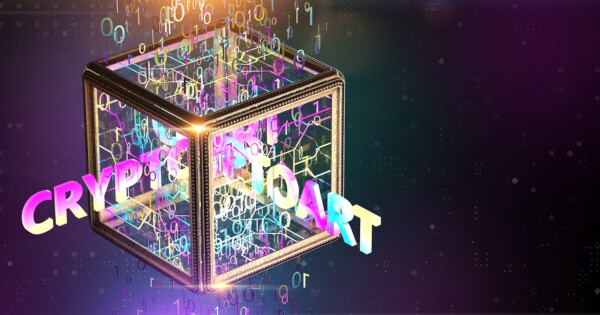US Treasury Department Concerns NFTs Crime of Money Laundering
Godfrey Benjamin Feb 07, 2022 04:00
The growing popularity of digital artworks as highly valued non-fungible tokens (NFTs) is now a major financial red flag as the United States Treasury Department believes they could be a vital tool for money laundering.

The growing popularity of digital artworks as highly valued non-fungible tokens (NFTs) is now a major financial red flag as the United States Treasury Department believes they could be a vital tool for money laundering.

According to a new “Study of the facilitation of money laundering and terror finance through the trade in works of art” as conducted by the Treasury Department, the claim that money launderers can hide behind NFTs to move large sums of money is very high.
“The emerging online art market may present new risks, depending on the structure and incentives of certain activity in this sector of the market (i.e., the purchase of NFTs, digital units on an underlying blockchain that can represent ownership of a digital work of art),” the report reads.
NFTs became more popular in the past 2 years as collections like CryptoKitties and Bored Ape Yacht Club (BAYC) started pricing at very huge valuations. While legacy NFT marketplaces like OpenSea have hit monthly transaction values upwards of $4 billion, showing how well collectors inject capital into the market, it is not uncommon for NFT artworks to price in millions of dollars. Blockchain.News reported in March 2021 that Beeple’s “Everydays", a collage of the artists' work for 5000 days sold for $69 million in Ethereum.
With huge valuations like this possible, the Treasury department argues that someone that has laundered some funds can easily use it to purchase an NFT to an unsuspecting seller and resell it to obtain clean cash. That transactions like this can take place Peer-2-Peer (P2P) even makes them untrackable, another concern the regulator has.
While traditional auction houses have started hosting NFT-focused auctions, the department believes they may not have the requisite technical knowledge to conduct the right verifications.
“Moreover, traditional industry participants, such as art auction houses or galleries, may not have the technical understanding of distributed ledger technology required to practice effective customer identification and verification in this space,” the report said.
With the focus on NFT now, the emergence of new regulations to crack down on the space in the mid to long term will not come as a surprise.
Image source: Shutterstock.jpg)